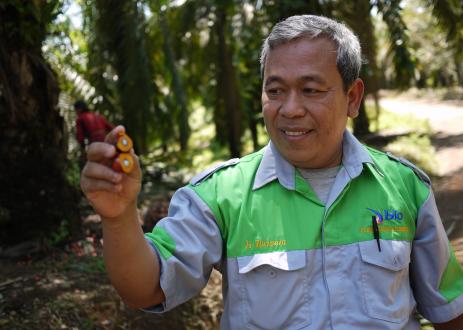Gaining Ground
Institutional Barriers Hampering Land Conflict Resolution in Indonesia

Synopsis
This report explores the institutional barriers to land conflict resolution in Indonesia, focuses on the government's institutional structure and capacity at the national level, leaving aside the courts and regional or local government. It provides information on the overview of land conflict in Indonesia, the distribution of authority within the national government in land conflict resolution, how it affects the resolution efforts, and other factors that hamper the efforts of national institutions to effectively resolve land conflicts.
Highlights
- Based on an extensive investigation, this report applauds the Indonesian government’s current programs and initiatives to resolve land conflicts. Land conflicts threaten to slow down the country’s economic development and equitable management of natural resources.
- However, more progress can be made, especially in overcoming institutional obstacles. This report identifies the institutional barriers the government will need to overcome to further address the country’s persistent land conflicts.
- Among them, overly administrative, ad hoc, and reactive approaches have left the nation without a coherent strategy to address the underlying structural problems that continue to trap communities, corporations, and governments in land conflicts.
- This is compounded by a complex and scattered set of uncoordinated institutions and further weakened by a lack of skilled workers, clear operational mechanisms, accurate data information systems, and funding.
- Corruption and conflicts of interest are rampant throughout Indonesia’s land administration, which further intensifies the conflict between the powerful and the weak. The nation’s top leaders will need to show leadership and strong political will to break the gridlock and jump-start reform to improve land conflict resolution.
- This report concludes that an innovative institutional model that addresses these institutional barriers needs to be revised to improve land conflict resolution.
Projects

Forests and Landscapes in Indonesia
Visit ProjectData-driven analysis to support government and civil society actions for effective and equitable land-use in Indonesia.
Part of Forests & Land Use